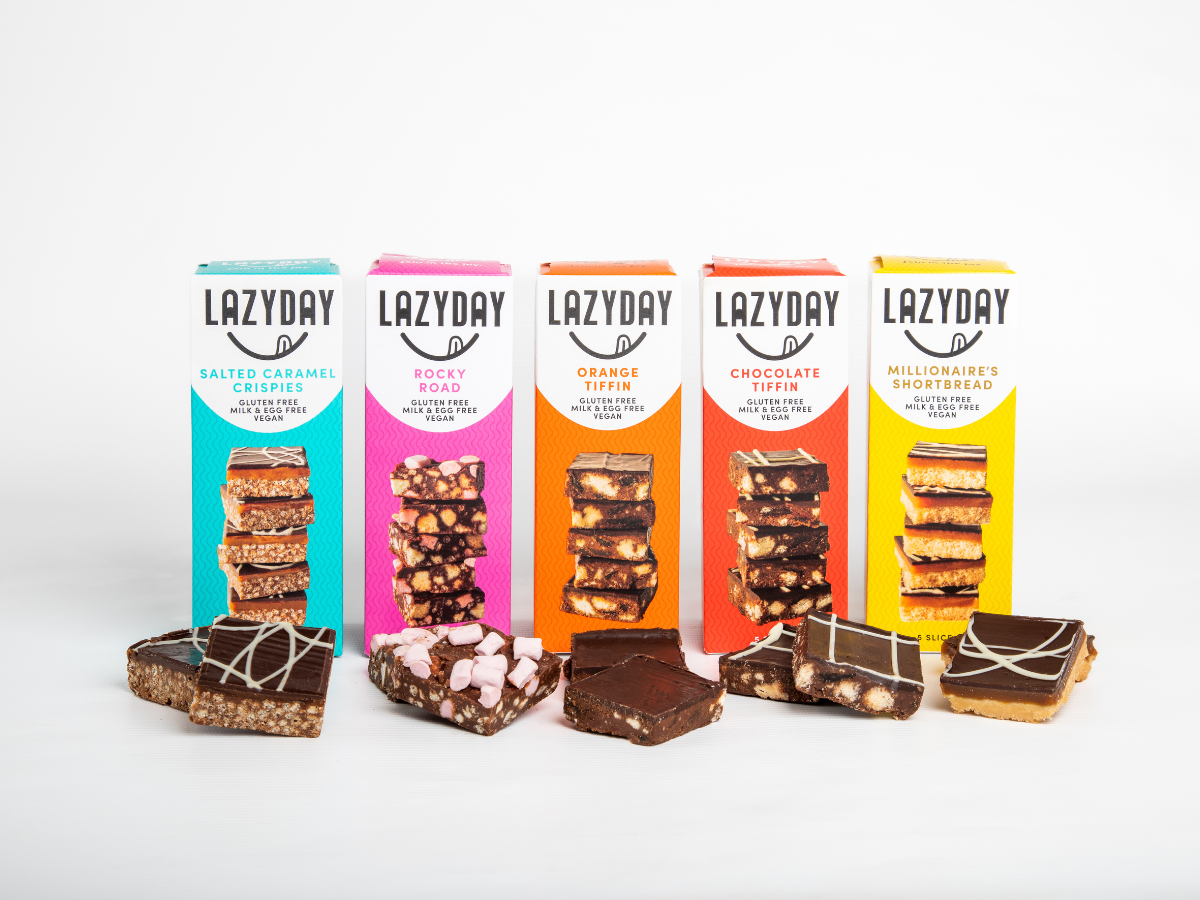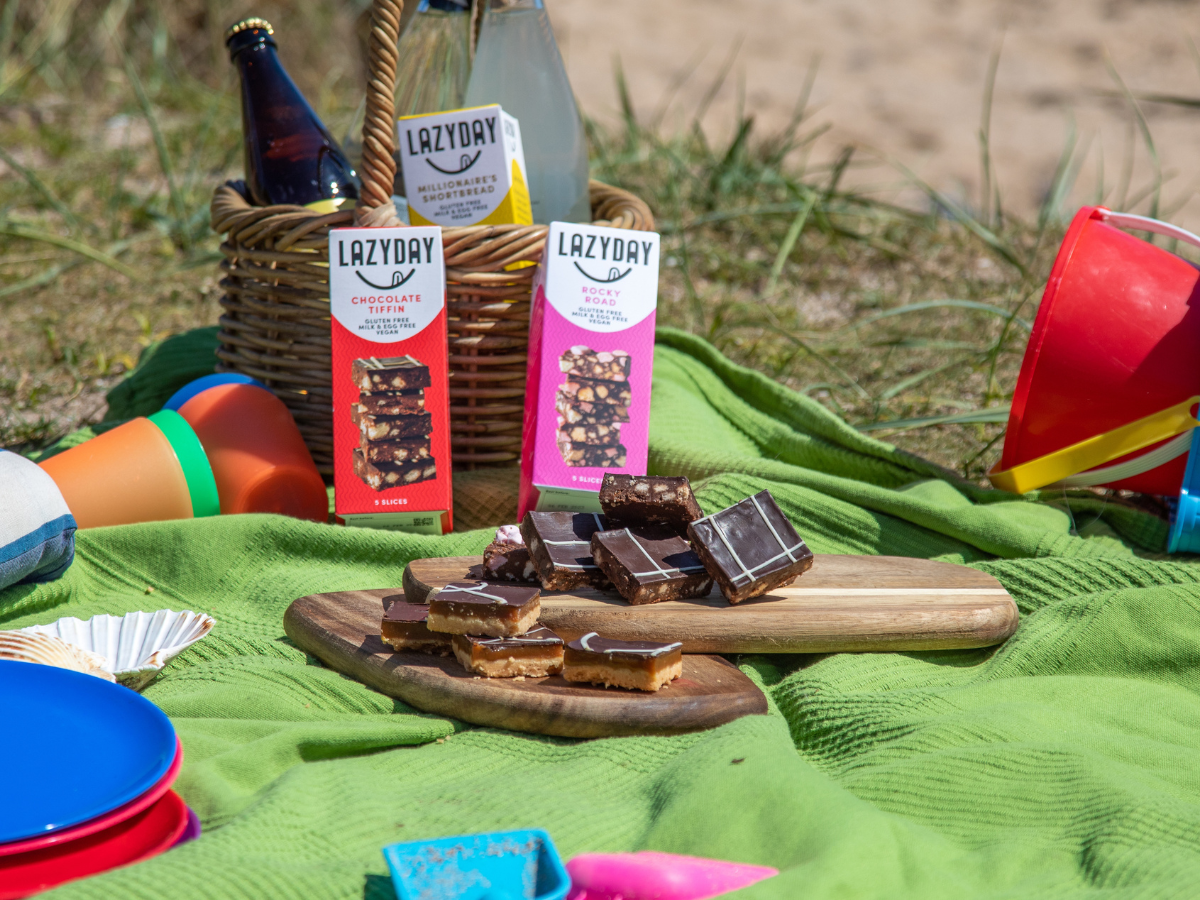Travelling abroad can be a little stressful at the best of times. And jetting off to a foreign country with certain dietary requirements can add an extra layer of anxiety. But you shouldn't let it affect the joy of exploring new places and cultures.
In fact, you should view this as a fantastic opportunity to get an insight into an entire range of new gluten-free foods, and you might even come back with a few recipes or foods to try out once you're back.
We, too, have experienced those first nerves when travelling with food intolerances, so we wanted to share our advice for overcoming some of the challenges you might face, as well as how to prep before your trip to ensure smooth sailing.
Is There Gluten-Free Food Available in Other Countries?
It may seem like an odd question, but it's one we've been asked numerous times! Gluten-free foods are not at all limited to the UK since people across the globe experience gluten intolerances, too.
“...it can be assumed that more than 7 million people are affected by coeliac disease across Europe, with only approximately 25% of those actually receiving a diagnosis.”
What you are likely to find is the type of food will be different depending on where you're holidaying. For example, there's probably going to be a lot of gluten-free pasta options in Italy and noodle dishes in Asia. But the premise remains the same; you'll find plenty of gluten-free options wherever your travels take you.
How to Plan Your Trip With a Gluten Intolerance
Every holiday comes with a certain level of prep, like checking the passports, packing, printing your boarding passes, and checking your passports again for the umpteenth time. Even though this might be the 'unfun' part of your holiday, planning can save you from any last-minute stressors.
As part of your pre-holiday prep, there are a few steps you can add to your list to make your eating away from home a little easier.
Here's some of the things we tend to think about…
| 1) Research the hotel & surrounding restaurants or cafes |
| 2) Take gluten-free snacks with you (if permitted) |
| 3) Download & save online food travel guides from Coeliac UK |
| 4) Get a Coeliac Travel Card, travel insurance, & an up-to-date EHIC card |
#1 Research the Hotel Restaurant & Surrounding Restaurants
You'll undoubtedly be eating out a lot while you're away, so research a few gluten-free-friendly restaurants in the area. You could list these and plan where you will eat during the days and evenings or even plot a map on your phone to help guide you. This might include restaurants for your evening meals, cafes for brunch, and little markets for snacks.
If you're staying in a hotel and have booked an all-inclusive, full-board, or half-board stay, contact the hotel in advance to tell them that you (or someone in your party) are gluten intolerant. They should be able to let you know what options are available or make some changes to cater for your party.
It's probably a good idea to do this research before you book, just in case the hotel doesn't have any suitable options for you and you need to make alternative arrangements – although most facilities do offer gluten-free menus.
#2 Take Gluten-Free Snacks With You
You could also consider bringing along your own gluten-free snacks for those moments when you can't find anything suitable to eat or for snacking in between travelling. If you're staying in a self-catering accommodation, this can also be a great option for having some gluten-free options readily available.
Our individually wrapped slices – like our free-from Rocky Road, Chocolate Tiffin, and Scottish Shortbread – are really handy for this, and we've taken them on a few overseas trips ourselves. Just make sure to follow any airport regulations and foreign customs rules for bringing food products into the country.
#3 Download Online Travel Guides
Coeliac UK has some incredible gluten-free travel guides for over 50 countries full of information on popular eating locations and contact details for the local coeliac disease organisation.
These guides are available for free to members to download, so you can save them on your phone before setting off.
#4 Get a Coeliac Travel Card
If your holiday is taking you to a non-English speaking country, or you're not brushed up on the country’s tongue, a travel language card is a must-have. This handy card is printed with a message stating that you're gluten-free in the native language, which you can hand over to waiters, chefs or anyone else who needs to know about your dietary restrictions.
You can find these online in just about every language, and can make communication much easier when trying to explain your needs.
You should also look into your travel health insurance options to make sure you're covered for coeliac or gluten intolerance. A valid GHIC (Global Health Insurance Card) is also important if you're travelling largely within EU countries, as it can provide you with free or reduced-cost medical treatment should you need it.
Recognising Gluten-Free Labels in Other Countries
You'll likely find yourself shopping at local supermarkets or food markets while travelling, and it's important to know how to spot gluten-free products in other countries.
Luckily, "all packaged foods in the EU are covered by the same food labelling legislation as in the UK" (Coeliac UK), so you should recognise the familiar crossed grain symbol or gluten-free statements on product packaging. All ingredients in the food will also be listed, including any traces or 'may contain' statements.
You will need to be wary of the fact that these ingredients will very likely be written in another language, so it's worth getting to know the translation or using a translation app to help you out.
Common Gluten-Free Phrases in Other European Languages
Even if you're not a whizz at learning new languages, familiarising yourself with common phrases and statements will be really helpful while you're abroad, both for reading food packaging and conversing with the locals.
We've listed out a few common phrases in other European languages that you should try to learn how to say, or you can screenshot this table and keep it close by for when you may need it.
| Phrase in English | Phrase in Spanish | Phrase in French | Phrase in Italian | Phrase in German | Phrase in Polish |
|---|---|---|---|---|---|
| “Gluten-free” | “sin gluten” | “sans gluten” | “senza glutine” | “glutenfrei” | “bezglutenowe” |
| “Do you have gluten-free?” | "Tienes productos sin gluten?" | "Avez-vous des produits sans gluten?" | “Avete il senza glutine?” | “Haben Sie glutenfreie Produkte?” | “Czy masz produkt bezglutenowy?” |
| “Is this gluten-free?” | "Esto no contiene gluten?" | "Est-ce que c'est sans gluten?" | “È senza glutine?” | “Ist das glutenfrei?” | “Czy to jest bezglutenowe?” |
| “Does this contain gluten?” | "Esto contiene gluten?" | “Est-ce que cela contient du gluten?” | “Contiene glutine?” | “Enthält es Gluten?” | “Czy to zawiera gluten?” |
| “I am gluten-free/They are gluten-free” | “estoy libre de gluten/son sin gluten” | “Ils sont sans gluten/Ils ne contiennent pas de gluten” | “Sono senza glutine” | “Ich bin glutenfrei/Sie sind glutenfrei” | “Jestem bezglutenowy/Są bezglutenowe” |
| “I am coeliac” | “Soy celiaco” (m) “Soy celiaca” (f) | “Je suis cœliaque” | “Sono celiaco” (m) “Sono celiaca” (f) | “Ich bin Zöliakie” | “Mam celiakię” |
Enjoy Gluten-Free Eating On Your Vacay
At first, it can definitely feel daunting to venture into a new country when you have certain dietary requirements but it should still be exciting. While it might require a bit of extra planning, there are plenty of delicious gluten-free options available worldwide, and you'll have a blast experiencing local cuisine and foods you may not have tried before!
Clue yourself up on some of the phrases you're likely to need or come across, do a bit of research into the surrounding area beforehand, and you'll be all set to enjoy a stress-free vacation.
If you want to stock up on some gluten-free snacks to take with you on your travels, explore our range online! We create a fantastic selection of free-from foods, like Millionaire's Shortbread, Fruit Cake, and Oaties, with neatly pre-wrapped options available for tucking into your hand luggage or suitcase (again, always check the customs laws of the country you're travelling to).
Explore the rest of our blog for more tips, tricks and recommendations on free-from eating.
FAQs
-
Researching will be your best bet for finding and planning for gluten-free options when travelling. Start by checking that the hotel or accommodation you're staying at can cater for gluten-free diets. Also, look online at surrounding restaurants and food options to make a list of places to check out.
A Coeliac Travel Card will also be really helpful when you're eating out at these places – it's printed with a message in the local language stating your dietary requirements.
-
European countries are some of the most gluten-free-friendly places to travel. Around 1 in 100 people have coeliac disease in Europe (AOECS), so the options available are widely recognised and often catered for. Also, all countries within the EU follow the same food packaging regulations as those in the UK, so it'll make it much easier for you to identify safe and unsafe foods in shops.
-
Many airlines do serve gluten-free options – you should check with your chosen airline in advance for their policy and let them know in advance that you will require alternative meal options.
-
This depends on the location you're headed off to. Some countries allow you to take in solid foods in your carry-on and hold luggage, whereas others have very strict policies on bringing foreign foods across their borders. Check the gov.uk advice before travelling.





